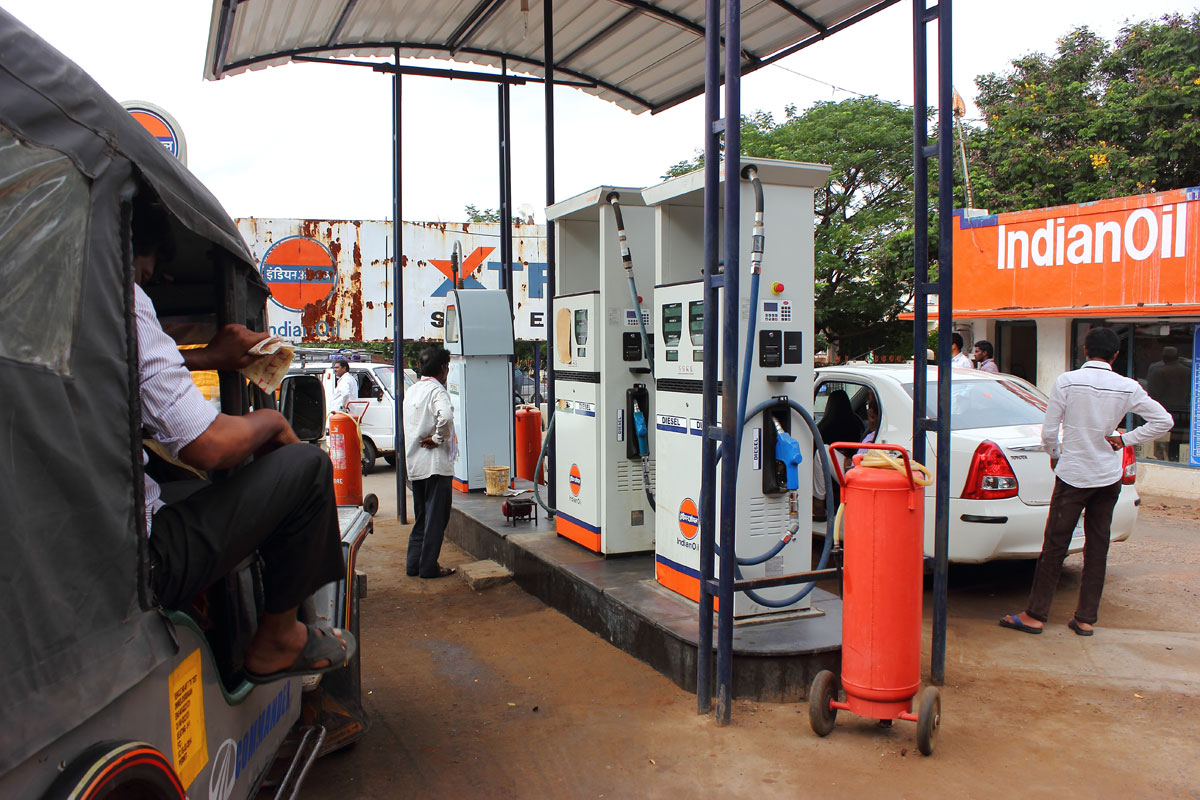EQUATIONS CHANGE
With prospects of Western sanctions on Iran easing in the near future, India has been keen to engage with Tehran again. Several high level official meetings have been held in the recent past. The moves are also in context of the business-friendly Indian government headed by Prime Minister Narendra Modi keenness to sign trade deals with Iran, other Gulf countries and also access rich hydrocarbon resources of Central Asia, writes Siddharth Srivastava.
A delegation of officials and executives from India’s flagship explorer Oil & Natural Gas Corp (ONGC) visited Iran last month to plead retaining of development rights of the oil major in the discovered Farzad-B gas field.
New Delhi has also signed an agreement with Iran to develop the strategically important Chabahar port on the Gulf of Oman, near Iran’s border, which will give India sea-land access route to the Middle East, Central Asia and Afghanistan, bypassing Pakistan. The port can be used to ship crude oil and urea, saving India transportation costs. The MoU was recently signed between India’s shipping minister Nitin Gadkari and his Iranian counterpart Abbas Ahmad Akhoundi in Tehran.
“Indian firms will lease two existing berths at the port and operationalize them as container and multi-purpose cargo terminals,” New Delhi said in a statement. Iranian President Hassan Rouhani, following his meeting with Gadkari, said, “Resumption of Iran-India cooperation in southeastern Iranian port city of Chabahar would lead to new chapter in relations of two countries.” New Delhi and Tehran agreed to develop the Chabahar port in 2003, but India kept away from the venture, as also others such as Iran-Pakistan-India pipeline (IPI) project and the Farzad B gas field, for fear of Western sanctions.
![]()
U.S. Unhappy
India and Iran have traditionally enjoyed close ties. However, over the last decade Indo-U.S. relations have improved encompassing several sectors ranging from defense, renewable and nuclear energy, shale oil and gas. New Delhi has thus been wary of engaging with Tehran in order not to annoy Washington. Indian refiners have cut crude oil import from Iran. New Delhi has been pushing for implementation of U.S.-backed TAPI gas pipeline from Turkmenistan while keeping away from talks related to constructing IPI pipeline. These equations could change should sanctions on Iran be removed.
Predictably, in separate, but strongly worded statements, the U.S. has warned both India and Pakistan not to engage with Iran’s energy sector, until Western powers work out a final nuclear agreement by the end of next month. Wendy Sherman, American Under Secretary of State, said India should “hold its horses.” “What I would say to India is what I say to every country that remains an importer of Iranian oil and wants to do business with Iran. Hold your horses. We understand that everyone wants to be first in line if sanctions get relieved. But, it will take some time even after an agreement for all the implementation to be worked out,” Sherman said.
In another statement, U.S. State Department’s special envoy for energy Amos Hochstein said. “As long as the agreement is not reached, sanctions are in place and therefore, Pakistan should hold off undertaking any project such as the IP (Iran-Pakistan) pipeline.” Pakistan, however, has signed an agreement with China, during the recent visit of President Xi Jinping, to construct a gas pipeline that could link with Iran.
![]()
A New Twist
There are indications Iranian trade negotiators have actually become more assertive with Indian counterparts as hopes rise of international sanctions on Tehran easing. Iran has reportedly told India that it is considering other offers for a major rail import contract signed with Indian entities. Quoting oil industry sources earlier this month, Reuters said that National Iranian Oil Company has told Indian refiners it would withdraw some of the discounts and free shipping it had been offering them on crude sales to maintain its oil output.
This is because Tehran anticipates Iranian oil exports to rise significantly as there will be many more buyers of crude, once the nuclear deal is finalized by June end. Iran has also remained non-committal about handing ONGC the rights to develop the Farzad-B gas field in the Persian Gulf.
“Tehran hasn’t accepted the offer and has decided to withdraw its offer for the development of the country’s Frazad B gas field to Indian contractors and plans to put out the project to tender,” Iran’s semi-official Fars News Agency reported recently, quoting unnamed Iranian oil ministry sources. ONGC, along with partners, Oil India Limited and Indian Oil Corp discovered the Farzad-B gas field in Farsi exploration block in 2008. The Indian entities, however, chose not to implement development plans to avoid U.S. sanctions. Frustrated due to delays by India, Tehran, last year, put Farzad-B on list of blocks to be auctioned in future.
Ironically, in 2013, the then Iranian oil minister Rostam Qasemi visited India to offer development rights for Farzad-B on production sharing basis, circumventing national Iranian laws. With the strategic climate changing, Iran, it seems, is looking to hit back. Or go strictly by commercial interest.


